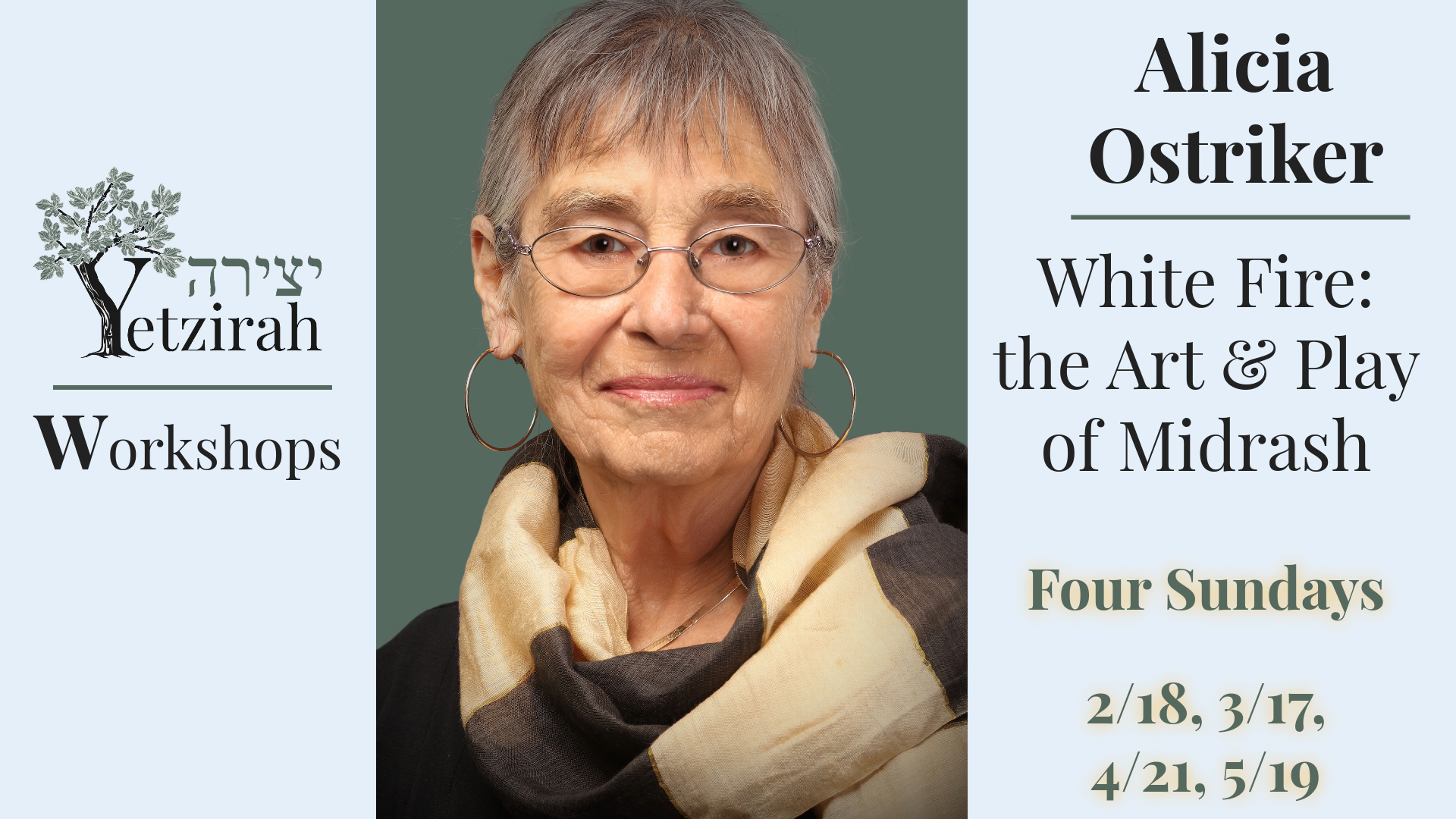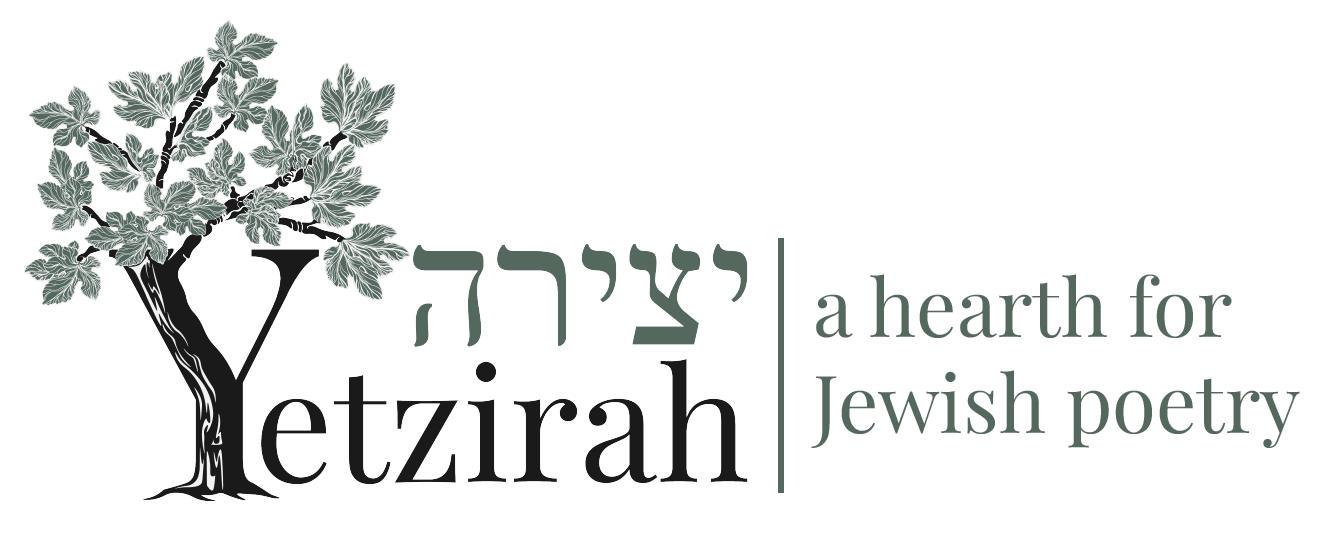
“White Fire: the Art & Play of Midrash” with Alicia Ostriker
December 10, 2023: This workshop is now full, but will be available to take in the summer as an asynchronous, pre-recorded course.
If you like, you can add your name to this waitlist, in case a participant is not able to attend.
Four Sundays, 12:30 -3 pm ET: February 18, March 17, April 21, and May 19
$144—standard registration
$118—discounted registration for Yetzirah Members (you can become a member here)
*As we want our offerings to be accessible to all, there is a pay-what-you-can option if this pricing is a hardship
If the text does not apply to us it is an empty text…. We take the text in relation to ourselves, understanding ourselves in its light, even as our situation throws its light upon the text, allowing it to disclose itself differently, perhaps in unheard-of ways.–Gerald Bruns, “Midrash and Allegory: the Beginning of Scriptural Interpretation”
She is a tree of life to those that lay hold on her.–Proverbs 3:18.
Midrash (pl. midrashim) is from a term in Hebrew meaning seek or investigate. The word has many meanings in Jewish history, but for poets, it means re-telling the compelling stories of Torah in every generation, in ways that are both personal and communal. For when we create new midrash in response to our own spiritual and psychic needs, we are simultaneously adding to and transforming our tradition, growing new twigs on the Tree of Life that is Torah, and helping to create the future of Judaism.
Imagine that you are Eve. You have just had an interesting conversation with a talking serpent who insists that God doesn’t want you to eat the fruit of the Tree of Knowledge of Good and Evil because He is afraid you will become as one of the gods yourself. You regard the tree, and see that the fruit is attractive, good to eat, and good for making a person wise. You reach forth your hand, take the fruit, and eat. What do you feel at that moment? What are you thinking?
Imagine that you are Jacob. You are alone at night in the Negev Desert. Your family is on one side of the Jabbok river, and you are on the other, worrying. In the morning you will be meeting your brother Esau. You haven’t seen him for twenty years, not since you cheated him out of your father’s blessing and he threatened to kill you. Suddenly a man appears from nowhere and leaps on you, throwing you to the ground. He wrestles with you all night. He dislocates your thigh. Neither of you wins. As the sky lightens, the strange being says, “Let me go, for dawn is coming.” What are you feeling at that moment?
There are countless things the narratives of Torah don’t tell us. This is where midrash comes in. According to tradition, Torah is not words alone. Torah is black fire written on white fire. Through midrash, we imagine the breadth and depth of the unsaid, the silences, the hidden conflicts and exaltations, the white fire. We read between the lines. We can see the connection between our ancestors and ourselves, and we can see that Torah is not only a very ancient Book–it is a totally modern one too. It mirrors our lives and the life of society, at least as well as any novel, and maybe better. As we enter the stories, the stories enter us, and both are changed forever.
In these workshops, we explore biblical texts in free-form discussion, we write in response to prompts, we commonly astonish ourselves and each other by what we write, we laugh a lot, and sometimes we cry.
